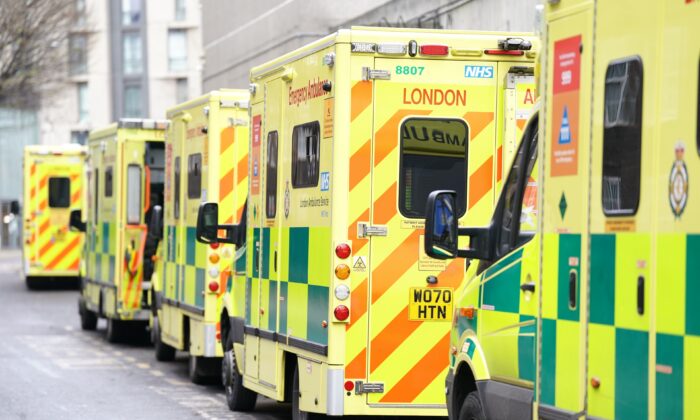Investigators discovered that the high volume of 999 calls from prisons was attributed to staff’s fear of facing a coroner’s court or being held accountable for incorrect decisions.
A report by the Health Services Safety Investigations Body (HSSIB) revealed that ambulance services are dedicating a significant amount of time responding to medical emergencies in prisons that are later deemed unnecessary or not severe enough.
The HSSIB stated that approximately 1,250 hours of ambulance crew time are wasted each year due to unnecessary 999 calls from prisons. This not only impacts the prison and emergency services but also affects individuals in the community waiting for ambulance assistance.
In a specific case mentioned in the report, a patient described as “unresponsive” led to both air ambulance and ambulance crews being dispatched. Upon arrival, it was discovered that the patient was simply refusing to answer questions.
The investigation also uncovered an incident where an ambulance crew was called to assist a 90-year-old patient with a twisted ankle, only to find a 30-year-old man with multiple stab wounds. In other instances, ambulance crews arrived at scenes with multiple patients, often due to inadequate communication of the patient count.
The report suggested various recommendations to address these challenges, including improved training for prison staff to identify genuine medical emergencies that require 999 calls. Collaboration between the Association of Ambulance Chief Executives and HM Prison and Probation Service was also proposed to establish effective communication channels between prison and ambulance services.
The root cause of the high number of non-emergency 999 calls from prisons was identified as staff’s apprehension about facing legal consequences or being blamed for incorrect decisions. The official guidance for calling a medical emergency advises prison staff to err on the side of caution and request an ambulance that can be canceled if deemed unnecessary later on.
Dr. Nick Murch, president of the Society for Acute Medicine, emphasized that the NHS urgent and emergency care system has been under immense strain for an extended period, citing factors such as overcrowding and resource shortages. Recent data revealed that a significant number of patients attending emergency departments in May experienced prolonged wait times, with some waiting 12 hours or more.
In July, 999 emergency services responded to over 820,000 calls, averaging 26,500 calls per day. While this was lower than most months in 2022, it exceeded the call volume in most months of 2023.
Please rewrite the given sentence so that I can assist you better.
Source link




